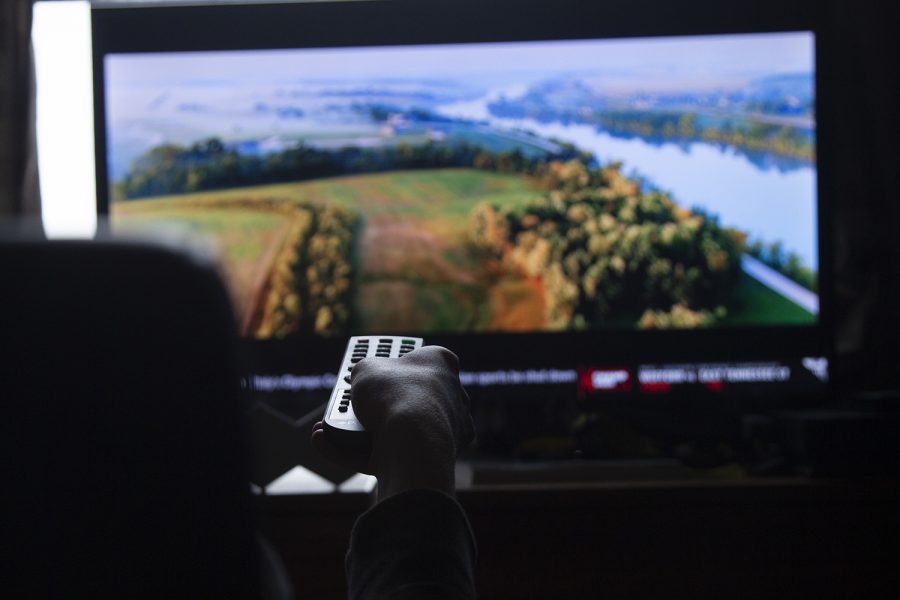Opinion: TV is more effective when watched as it airs than binging a whole season
As streaming concretes itself as the sole way to watch television through binging, viewers can forget the original way the medium was made to be consumed: weekly.
Photo Illustration by Raquele Decker
March 9, 2020
With the rise of streaming services such as Netflix, Amazon Prime, Hulu, and others, most television viewers now usually expect their favorite shows to premiere a whole season on a single day.
Those waiting for the latest season of Stranger Things will finish the whole thing in one go. This is binge culture, but is it how television should be presented? No.
Although Netflix streamers just got their hands on Better Call Saul’s fourth season, others — myself included — are watching the currently airing fifth season every Monday night. Sure, I could wait until next year when we can binge 10 episodes while its final season airs. But then I can’t examine a single episode or create hype over the next.
The practice of presenting a story in weekly increments was actually first practiced by author Charles Dicken in the late 1800’s when releasing his would-be classics such as A Tale of Two Cities and Great Expectations in chapters, opposed to a whole novel. It was a successful strategy, not only commercially but also artistically, serving Dickens cliffhangers that proved effective when American readers of The Old Curiosity Shop expressed their anticipation by waiting at a harbor to purchase the final chapter. This would repeat itself in television.
Before we got Netflix and the 13-hour dump of episodes, there would be religious weekly viewing of a show. Shows like The Sopranos and Breaking Bad would be the topic of Monday mornings, something that would create a minor instance of chatter among viewers.
RELATED: Physical media lives: The Criterion Collection shows steadfast demand for physical films
Even back in serialized TV’s infancy when Twin Peaks aired, people asked, “Who killed Laura Palmer?” It started theories which probably would’ve maximized if social media were around (which is why Succession is Twitter’s favorite TV show). But streaming destroys this.
Streaming eliminates the communal effect of television. When returning home for winter break, I noticed each of my family members had a different show they were watching. My brother was beginning The Boys, my oldest sister finished The Witcher, my younger sister was in the middle of Cheer, while my parents discussed whether to begin Narcos or Outlander.
But this wasn’t the case when Game of Thrones was on the air. Although we’d watch the series separately (anyone knowing HBO content can guess why) we’d talk about it over breakfast. My father would be spreading butter on his toast while telling me how “The Battle of the Bastards” episode was cinematic while my mother served coffee, surprised as to how the good guys won that episode (it’s been a love-hate show for her).
But with a boom of streaming services such as Disney Plus, Apple Plus and others on the horizon, the weekly format’s come back in style mostly for these respective platforms lacking in content. Most Disney Plus streamers would’ve left the service if The Mandalorian had provided its whole season on one day. Maybe it might not be the end for weekly episodic releases, but only time will tell.
Starting next Monday, I’ll have seven shows to watch per week. It’s a TV fanboy’s dream. But who knows for how long a viewer such as myself will have the ability to watch an episode weekly? To see it as a singular effort and speculate with friends and loved ones what’s next to come? It’s better than spending a whole weekend to watch a series that not everyone is watching.



